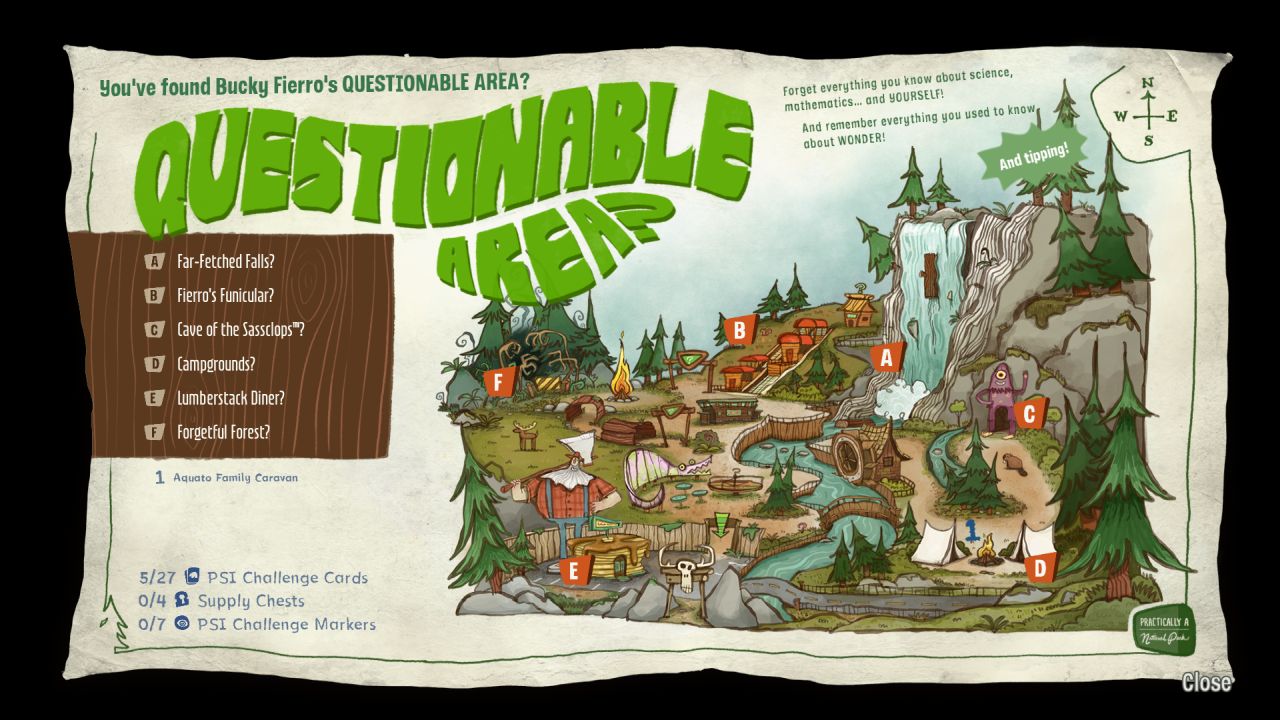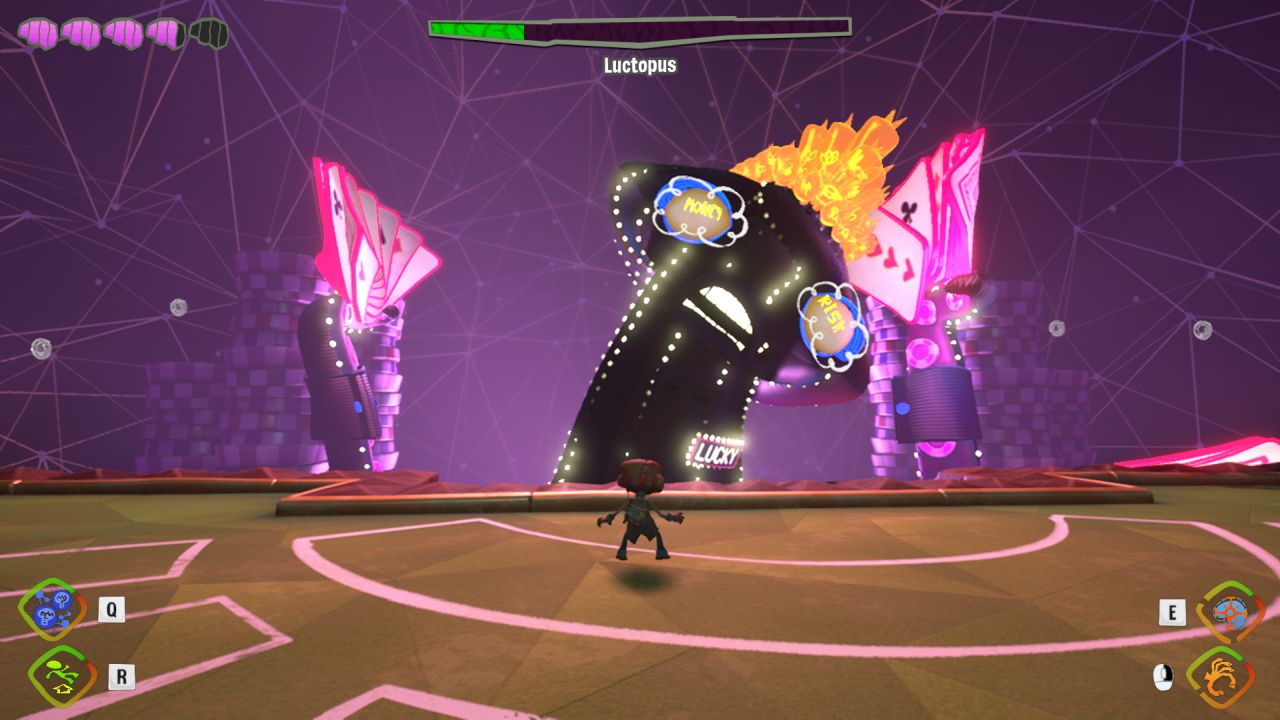The actual levels in Psychonauts 2 are more fantastical than anything I could conjure up here. There were many times playing it when I had to stop my 3D platforming and just look around in awe, taking in the still tableau of a little town made of hair, threatened by a huge tower of waves of blue locks wrapped with curlers. Or the juicy green landscape of a Yellow Submarine-esque 60s musical wonderland, every plant sprouting a crop of giant eyes. Or the paper trees that sometimes appeared among the towering archives of a giant book repository, where sketches of a knight and a dragon argued over pizza toppings. Most of Psychonauts 2 (as with the original Psychonauts) takes place in the battleground of the human mind. Psychonauts 2 continues the story pretty much directly from the VR-only Psychonauts: In The Rhombus Of Ruin, but you’re brought up to speed quickly as Raz is inducted into the Psychonauts’ internship programme back at their base. The ’nauts, a sort of private spy agency battling psychic threats by spelunking into different people’s subconscious, are facing the return of Maligula. She was a powerful water-themed psychic thought to have died in a battle with the founding Psychonauts 20 years prior. As Raz, you dive into the founders’ heads, with a few other cranial diversions along the way, to figure out what happened all those years ago, and where Maligula actually is. It’s this setting that allows the levels to hit such rich veins of cartoony weirdness, as you’re platforming around a metaphor for someone’s relationship with their mother, and have boss fights against the fear of being abandoned, or guilt or over past actions. A feast for the senses indeed. This new and improved version of Psychonauts has a slightly more cohesive story, and takes a more careful angle on things. It’s still funny, with the art style and writing giving it Tim Burton via 00s Cartoon Network. The editing also makes use of jump cuts and crash zooms to great effect, too. But Psychonauts 2 approaches serious themes more thoughtfully than before. An aquatic garden, full of plants that look like martini glasses and bottles of liquor for platforms, represents a parents’ secret alcoholism, for example. But these levels don’t come accross as crass - a balance is struck where you’re not exploring these events in detail as they happen, but instead navigating the impression they left. As such you can enjoy the brain worlds without feeling guilty, and while appreciating the overall message that, y’know what? Most people are dealing with some shit. In this way Psychonauts 2 is a bit less wacky than the original, and sidelines some of the more bombastic characters carried over from the first game, like Agent Nein and Coach Oleander, in favour of a more balanced cast of interns and staff who are a bit less memorable (aside from Sam, who is extremely memeable). They occasionally all come together to help Raz out, but for the most part you’re on your own. Not that Raz isn’t tooled up for a fight, as he comes with an arsenal of mental powers to use. You start with Levitation, Telekinesis and a Psi Blast that operates like a gun, as well as Pyrokinesis to start fires. As you go you unlock more, including the power to slow down time or warp between errant little floating thought bubbles. These are all applied in combat in fun ways. The Censors, with their angry little ban hammers, are easily stunned with Telekinesis. The fast and chaotic Panic Attacks need to be slowed down so you can hit them. Doubts, goopy and purple, burn really well, apparently. Remapping abilities when you need them is a bit of a faff, but I found the fights were generally not too taxing, including the boss fights against vomiting goats and a big neon octopus. You ramp up your levels pretty quickly, keeping pace with any enemy difficulty, and can improve your favourite abilities as you go. By the end, you can expect to have maxed most things out, and you can also buy pin badges to equip, enhancing or changing your powers. In fact the exploration and platforming was both more of a delight and a challenge for me. Though I got on with it much better than the original Psychonauts, I still found Raz’s jump a bit hard to wrangle at times, though the elbow room for grabbing ledges or moving hazards is very forgiving. The same abilities you use in combat are all also used to switch up the platforming, and encourage you to replay levels and explore to find secrets (especially collectibles like the Emotional Baggage, a bunch of weeping hatboxes and handbags hidden around levels). Burning a poster or painting might reveal a secret room, for example. You’re given a list of optional scavenger hunt items for extra intern credit, which includes stuff like old sushi and a human skull. Ultimately, this is why Psychonauts 2 is so good. It is playful. It’s fun. It’s climbing inside a giant wedding cake, riding flying letters, taking part in a giant cooking show with eggs that are excited to be boiled kind of fun. What more, on this planet, at this time, could you possibly want?


